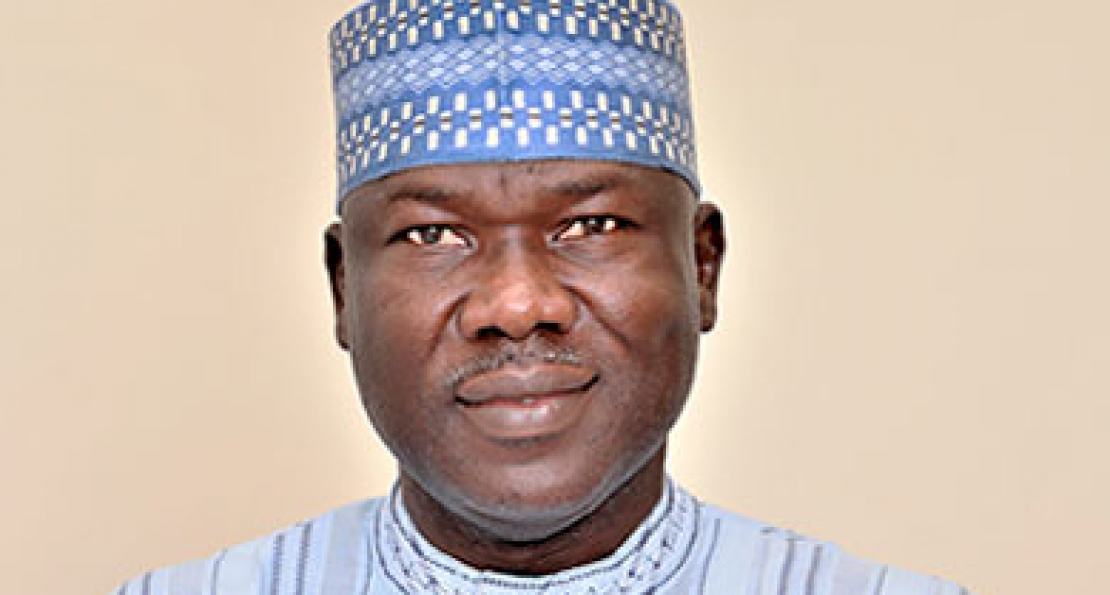Every year, millions of Nigerians graduate from over 100 universities in the country.
This quite impressive number does not in reality translate to increased productivity for the country. In a keynote speech for the Civil Society Coalition on Basic Education and Good Governance, AUN’s Vice President for University Relations (VPUR), Dr. Abubakar Abba Tahir grappled with the statistics of Nigeria’s ambitious churn out of graduates and the antonymous quality of education they receive.
“Without the necessary skills and mentorship in running a business, graduates will continue to increase in volume and pose a variety of social, political, and economic problems for the country. It was on the basis of the compelling hindsight to train and empower youngsters to graduate as job creators that AUN was able to flesh out a typical American style curriculum.” Dr. Tahir was speaking at the Civil Society Coalition’s national award ceremony where he represented AUN President, Dr. Dawn Dekle.
At the august occasion, a cross-section of government officials, civil society, and key actors in the education sector gathered at the Ahmadu Bello Hall of Wetland Parks in Yola On Thursday, October 8th, 2020. In his speech, he underscored the primacy of education in all cultures and systems.
“There is an organic interface between the imperative for basic and qualitative education and the resultant engagement with salaried employment or entrepreneurship. Hands-on skills and competencies will be deployed and tested, to support various categories of livelihoods. Therefore, the essence of every education is to chart a productive, sustainable, and mutually rewarding career path for everyone in society.” He said.
His presentation was conceived in recognition of the imperative for innovation, job skills, and entrepreneurship education in Nigeria’s sustainable development. The VPUR proposes, “The priorities in our educational curricular must be refocused to come to terms with Nigeria’s present-day needs. The educational curriculum of yesteryears, which mainly focus on producing job seekers, must change with a strategic emphasis on manufacturing job creators, to fast-track sustainable development of the country” With lively anecdotes from his own career progression, Dr. Tahir regaled the audience with his exploits as a budding newsman.
“My path into journalism developed from the urge to listen to the radio and continue reading any press-like material anytime. This urge, which started right from primary school and moved to writing topical stories of the moment, and posting them on the campus notice board at Teachers College. I did not know that the stories were growing and developing in value and interest around the campus. Until one day when I was posting a new story written on the traditional A3 foolscap sheet, came Brother Fergus, the most senior among the Scottish Catholic Missionary teachers who run the Teachers College, which I attended. I did not know that Brother Fergus was waiting behind to read the latest news from my bulletin. I can’t remember the subject of the story, but it was clear to have enticed the Catholic teacher-priest. He then edited the script on the notice board with red ink, effecting some grammatical and structural corrections on the story. This experience, which happened around 1981 was my first lesson in news editing, which came from someone other than a newsman. The experience no doubt left an indelible mark on my career path, giving me the necessary bearing in what was to become my passion in later life - journalism.”
From the nadir of his early mentorship with Brother Fergus, Dr. Tahir went on to achieve great heights, the pinnacle of which was his tenure as general manager of the Adamawa Broadcasting Corporation (ABC) and a roundabout of all media houses in Adamawa state. He served in various capacities. From board member at Gotel TV / Radio, Pulaaku Fm to news anchor and even volunteer in the case of Fombina FM.
Through his lifelong sojourn, many lessons can be drawn. Chiefly and with the most clarity is the insight that several interconnected elements of his educational foundation have formed the basis for a truly successful career path. “It can also be seen how the various educational systems from secondary school to university, have been able to build and sustain my appetite in journalism, so much so that it became difficult for me to disconnect from my already chosen field from childhood to retirement. This variety of career development opportunities have given me a broad range of options to either work in the public sector, become an entrepreneur in my field, or establish a media-related business that can generate revenue and also offer volunteering service to the community.” Dr. Tahir said.
In his present role as Adjunct Professor of Communications, Dr. Tahir mentors many students, fostering the AUN legacy of building a new generation of job creators. With many AUN alumni going on to establish their own businesses and providing innovative solutions to societal problems, this ambitious goal is well served not just for Nigeria's growing demographics, but for the entire African continent in desperate need of sustainable development initiatives.
By Office of Communications


